Contents
- A Few Common Reasons Why Balconies Leak
- 1. Non-enclosed Balconies
- 2. Leaks from UpstairsNeighbors
- 3. Poor Waterproofing
- 4. Rising Damp
- 5. External Factors
- Improper balcony construction
- Lack of proper waterproofing techniques
- Inadequate drainage system
- Damage to balcony sealing
- Causes of damage
- Signs of damage
- Solutions
- Preventing future damage
- Tips for Balcony Waterproofing
- Choose the right waterproofing material
- Hire a professional for balcony waterproofing
- “
Contents
- A Few Common Reasons Why Balconies Leak
- 1. Non-enclosed Balconies
- 2. Leaks from UpstairsNeighbors
- 3. Poor Waterproofing
- 4. Rising Damp
- 5. External Factors
- Improper balcony construction
- Lack of proper waterproofing techniques
- Inadequate drainage system
- Damage to balcony sealing
- Causes of damage
- Signs of damage
- Solutions
- Preventing future damage
- Tips for Balcony Waterproofing
- Choose the right waterproofing material
- Hire a professional for balcony waterproofing
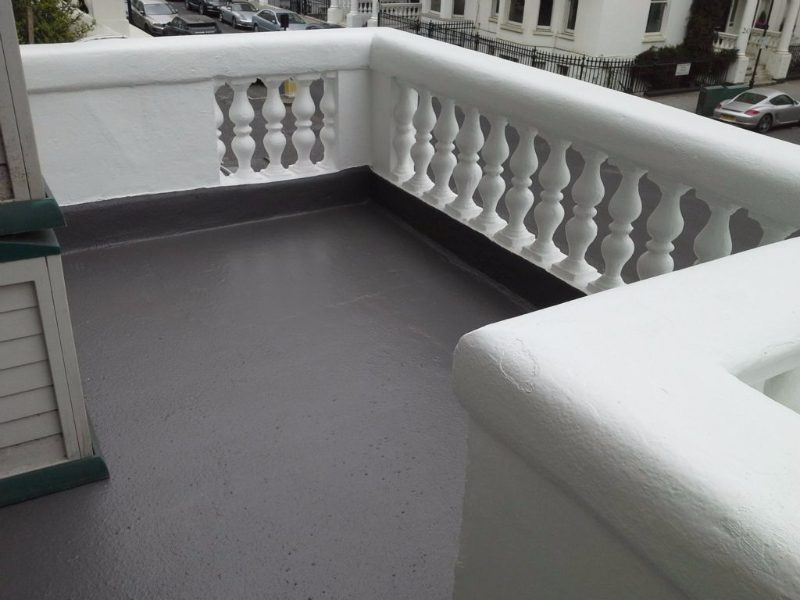
Have you ever had the unpleasant experience of finding water dripping from your upstairs neighbor’s balcony onto yours? Or maybe you’ve noticed that every time it rains, water flows in through your balcony door and drips onto the ceiling below? If so, you’re not alone. Balcony leaks are a common problem that many residents have to deal with, and finding the root cause and a proper solution can be quite challenging.
One of the most common reasons why balconies leak is improper waterproofing. Balconies are exposed to the elements, and they have to endure a lot – rain, wind, and sometimes even extreme weather conditions. If the balcony is not properly waterproofed, water can seep through cracks in the flooring or the railings, causing leaks.
Another common source of balcony leaks is structural defects. Balconies are often added as an amenity to a property, and sometimes the construction or design may not be up to par. This can result in water seeping through joints, gaps, or seams, leading to leaks. In some cases, balconies may have been enclosed with windows or blinds that prevent proper drainage and ventilation, trapping moisture inside and causing leaks.
If you’re a downstairs neighbor, you may have experienced the frustration of water dripping from your upstairs neighbor’s balcony onto yours. While it may seem like a simple problem with a simple answer – ask your neighbor to fix it – the reality is often more complicated. Some balcony leaks may be caused by factors outside of your neighbor’s control, such as heavy rain or a recent storm. In such cases, the best course of action may be to work together with your neighbor and the property management to find a solution that resolves the issue for both parties.
Of course, not all balcony leaks are the result of a neighbor’s negligence or bad weather. Sometimes the problem lies within your own balcony. If you have noticed water coming in while it’s raining or have seen signs of moisture on the walls or ceiling below your balcony, then it’s time to investigate further. Look for cracks or damage to the balcony floor, railings, or any other structural elements. You may also want to check the area around the balcony, as water can sometimes flow from an adjacent property or garden onto your balcony, causing leaks.
A Few Common Reasons Why Balconies Leak
When it comes to balcony waterproofing, there are a lot of common reasons why balconies can develop leaks. Understanding these reasons can help you prevent a potential leak and ensure the longevity of your balcony.
1. Non-enclosed Balconies
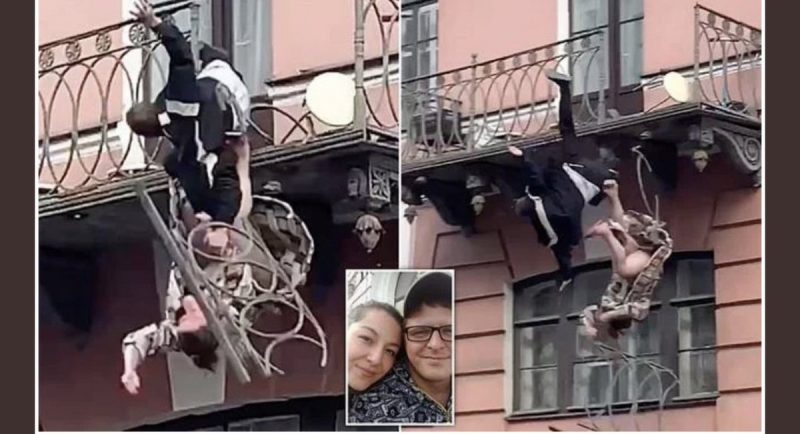
One of the main reasons why balconies leak is because they are non-enclosed. This means that they are exposed to the elements and are more susceptible to water damage. When it rains, water can easily enter through the gaps and cracks in the balcony floor and walls, causing leaks.
2. Leaks from UpstairsNeighbors
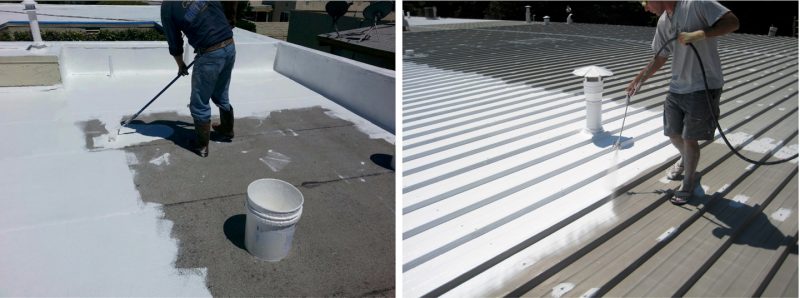
Another common reason for balcony leaks is when water from the upstairs neighbors seeps through the floor or walls and drips down onto your balcony. This can be especially frustrating if you live in an apartment building or condominium where you have little control over the maintenance of the units above you.
3. Poor Waterproofing
If the waterproofing on your balcony was not properly installed or has deteriorated over time, it may not be able to effectively prevent water from getting in. This can lead to leaks and water damage.
4. Rising Damp
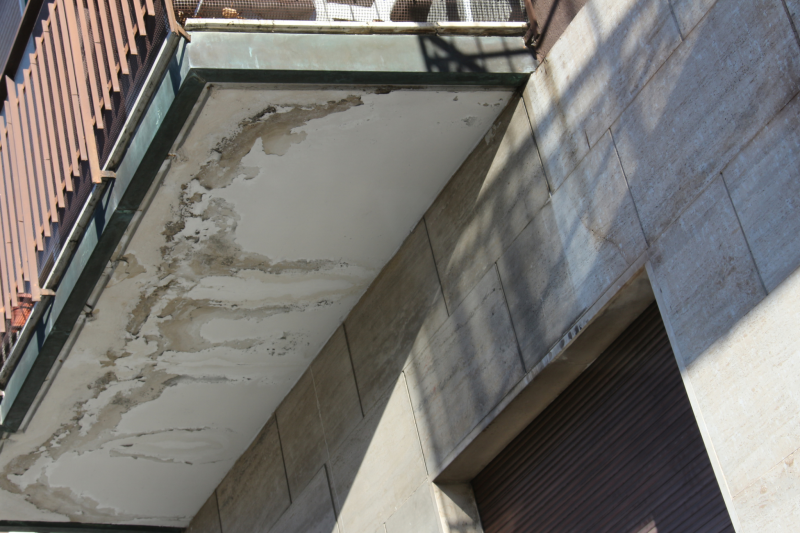
Rising damp is a phenomenon where water from the ground rises up through the walls and floors of a building. If your balcony is not properly sealed and waterproofed, this can cause water to enter your balcony and result in leaks.
5. External Factors
External factors such as heavy rainfall or high winds can also contribute to balcony leaks. If your balcony is not designed to withstand these weather conditions, water can easily penetrate through weak points and cause leaks.
In order to fix or prevent balcony leaks, it is important to identify the specific cause of the problem. By addressing these common reasons, you can ensure that your balcony remains waterproof and free from leaks.
Improper balcony construction
One of the most common reasons why balconies leak is due to improper construction. If the balcony was not built correctly to withstand the weather elements, such as heavy rain or wind, it can lead to leakage problems. When balconies are not built with the right materials or drainage systems, water can accumulate and seep into the structure.
Another issue that can cause leaks is improper sealing of the balcony. If the balcony is not properly sealed, water can penetrate through cracks or gaps and cause damage to the structure and the interior of the property.
Improper construction can also lead to problems with the balcony drainages. If the drainage system is not designed or installed correctly, water may not be able to drain properly, leading to pooling water or overflowing onto the balcony.
Some balconies may not have proper railings or barriers in place, allowing water to flow freely onto the balcony surface. This can be a problem especially if the balcony is located on an upper floor or if there are balconies above it. Water from other balconies can easily flow down onto the lower balcony, causing leakage issues.
To prevent leaks and ensure proper balcony construction, it is essential to hire a reputable contractor who is knowledgeable in balcony waterproofing techniques. They can ensure that the balcony is built to withstand the weather elements and will provide effective solutions to any leakage problems.
Lack of proper waterproofing techniques
One common reason why balconies leak is due to a lack of proper waterproofing techniques. Balconies are exposed to the elements and can be subjected to heavy rain, snow, and other forms of moisture. Without the proper waterproofing, water can seep into the balcony structure and cause damage over time.
Therefore, it’s important to fix any existing leaks and prevent new ones from occurring. There are several solutions that can be used to waterproof a balcony, including applying a waterproof membrane, using sealants, and installing drainage systems.
When it comes to balcony waterproofing, it’s also important to consider the balcony’s design and construction. The slope of the balcony floor and the positioning of the walls and railings can affect how water drains off the balcony and prevent it from pooling or leaking into the interior spaces below.
Another factor to consider is the use of balcony coverings or curtains. While these can provide additional protection from the elements, they may also restrict airflow and trap moisture, leading to condensation and potential leaks.
In some cases, balcony leaks may be caused by issues in neighboring apartments. For example, if someone living above you has a leaky balcony, the water may drip down onto your balcony, causing damage. In these cases, it may be necessary to address the issue with your neighbors or involve the building’s management or committee to find a solution.
In general, balconies in apartments should be waterproofed according to building codes and regulations. In New South Wales (NSW), for example, balcony waterproofing is covered by the Strata Schemes Management Act 2015, which imposes obligations on owners to maintain common property, including balconies, so as not to cause damage to other areas or create a nuisance for other residents.
If you are experiencing balcony leaks or are concerned about potential water damage, it’s important to seek professional advice and assistance. They can provide information on the best waterproofing techniques for your specific balcony and help address any existing or potential issues.
By taking the necessary steps to ensure proper waterproofing, you can help prevent balcony leaks, protect your balcony from damage, and avoid any tensions or legal restrictions that may arise from water-related issues.
Inadequate drainage system

One of the common reasons why balconies often leak is due to an inadequate drainage system. Many balconies are constructed with a poor or non-existent drainage system, causing water to accumulate and seep into the structure.
Over the years, balconies can develop restrictions in the drainage system due to dirt, debris, or other blockages. This can result in water pooling on the balcony surface, especially during heavy rain. If the balcony is not properly sloped, water will not flow towards the drain and may cause leaks.
Another issue is when balconies are enclosed by windows or awnings that are not properly sealed. These non-enclosed amenities often allow water to penetrate through gaps or cracks, leading to leaks. It’s important to regularly inspect and maintain these areas to prevent water infiltration.
In some cases, the balcony railings themselves can be the cause of leaks. If they are not properly installed or maintained, water can seep between the railing and the balcony surface, causing water damage over time.
To overcome these issues, it is essential to have a proper drainage system in place. This includes regular cleaning of drains to prevent blockages and ensuring that the balcony is sloped correctly to allow water to flow towards the drains.
If you live in a strata-titled building or a multi-unit complex, it’s important to discuss these issues with the strata committee. They can provide guidance on the best solutions for balcony waterproofing and may arrange for professional services to rectify any leaks.
In general, it’s always best to address balcony leaks as soon as they are noticed. Leaving them unattended can cause further damage to the structure and become a nuisance for neighbors living below.
Having a properly designed and maintained drainage system is the key to preventing leaks and water damage on balconies. Regular inspection, cleaning, and maintenance can help ensure that your balcony remains waterproof and a safe amenity for years to come.
Damage to balcony sealing
One common reason why balconies leak is due to damage to the balcony sealing. This can happen for a variety of reasons, and it’s important to address the issue as soon as possible to prevent further damage.
Causes of damage
Damage to the balcony sealing can be caused by a number of factors. Here are a few common ones:
- Age: Over time, balcony sealings can become worn out and deteriorate, leading to leaks.
- Weather: Harsh weather conditions, such as heavy rain or extreme temperature changes, can cause the sealing to crack or break.
- Poor installation: If the balcony sealing was not installed properly to begin with, it may be more prone to damage and leaks.
- Structural issues: Problems with the balcony’s structure, such as cracks or shifting, can put strain on the sealing and cause it to fail.
Signs of damage
If you notice any of the following signs, it’s likely that your balcony sealing has been damaged:
- Water pooling on the balcony floor
- Water stains on the ceiling or walls underneath the balcony
- Visible cracks or gaps in the sealing
- Drips or water coming from the balcony when it rains
Solutions
When it comes to repairing or replacing a damaged balcony sealing, there are a few solutions to consider:
- Repair: In some cases, it may be possible to repair the damage by sealing cracks or applying a new layer of waterproofing coating.
- Replacement: If the damage is extensive or the sealing is too old and worn out, it may be necessary to completely replace the sealing.
- Hire a professional: For the best results, it’s recommended to hire a professional balcony waterproofing company to assess the damage and recommend the most appropriate solution.
Preventing future damage
To prevent damage to your balcony sealing in the future, here are some tips:
- Regular maintenance: Inspect your balcony regularly for any signs of damage and address them promptly.
- Proper drainage: Ensure that water flows away from the balcony and that there are no blocked or broken drainage systems.
- Protective covering: Consider installing a non-enclosed covering, such as blinds or hangers, to protect the sealing from weathering.
- Be mindful of neighbor’s balconies: If you have an upstairs neighbor, make sure that their balcony is not causing water damage to yours.
- Install a door threshold: Installing a door threshold can help prevent water from coming inside through the balcony door.
By taking these steps, you can minimize the risk of balcony sealing damage and ensure that your balcony remains a dry and enjoyable outdoor area.
Tips for Balcony Waterproofing
Water leakage is a common issue faced by many homeowners when it comes to their balconies. It can cause significant damage to the structure of the building and lead to expensive repairs. To help prevent balcony leaks, here are some tips for balcony waterproofing:
1. Proper Drainage: Ensure that your balcony has proper drainage that allows water to flow out. This can be achieved by installing a sloped floor or using drainage channels.
2. Waterproofing Coating: Apply a waterproofing coating to the surface of your balcony. This will create a barrier that prevents water from seeping through and causing leaks.
3. Regular Maintenance: Keep your balcony clean and free of debris. This will help prevent any clogging that can lead to water pooling and leakage.
4. Caulking and Sealing: Inspect and repair any cracks or gaps in your balcony’s walls, floors, and windows. Applying caulk or sealant can help create a watertight seal and prevent water from entering.
5. Non-Enclosed Balconies: If you have a non-enclosed balcony, consider installing transparent or open enclosures. This will help prevent water from outside, such as rain or snow, from entering your balcony area.
6. Upstairs Balconies: If you live in an upstairs unit, be mindful of any balcony activities that may cause water to spill over onto the balcony below. Avoid washing rugs or other items that may hold water and drain it onto the balcony.
7. DIY vs. Professional Waterproofing: While DIY waterproofing solutions may seem cheaper, it’s important to weigh the benefits and potential risks. Hiring a professional waterproofing service can ensure that the job is done right and provides long-lasting protection.
Remember, taking the necessary steps for balcony waterproofing can help prevent water leaks and increase the lifespan of your balcony. If you’re unsure about the best solutions for your balcony, it is always best to consult with a professional.
Choose the right waterproofing material
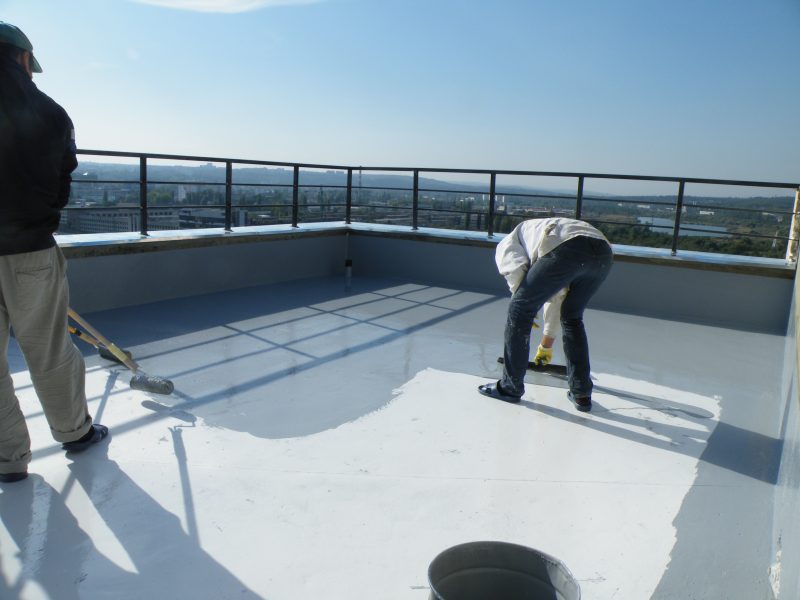
When it comes to balcony waterproofing, choosing the right material is crucial for ensuring long-lasting protection against leaks. There are several options available, each with its own advantages and disadvantages, so it’s important to consider your specific needs and budget.
One of the most commonly used materials for balcony waterproofing is aluminum flashing. It’s a durable and weather-resistant material that can be easily installed to provide a watertight seal. However, it’s worth noting that aluminum flashing may not be the best choice for balconies that are exposed to heavy rain or extreme weather conditions. In such cases, a more robust waterproofing material, such as liquid-applied membranes or sheet membranes, may be a better option.
Another popular option is plastic sheeting, which is affordable and easy to install. However, it’s not as durable as other waterproofing materials and may need to be replaced more frequently. Additionally, plastic sheeting may not provide the same level of protection against leaks as other materials, especially if it’s not properly installed.
Before making a decision, it’s always a good idea to consult a professional who can assess your balcony’s specific needs and recommend the best waterproofing material for your situation. They can also provide advice on proper installation techniques and maintenance to ensure the longevity of your balcony’s waterproofing.
In general, it’s important to choose a waterproofing material that is designed to withstand the outdoor elements and that is compatible with the specific conditions of your balcony. This will help prevent leaks and structural damage, and ultimately save you time and money in the long run.
Remember, balcony waterproofing is not something to be taken lightly. It’s essential to address any leaks or signs of water damage as soon as possible to prevent further issues down the line. If you notice wet spots, dripping water, or any other signs of water intrusion, it’s time to take action.
By installing the right waterproofing material and following proper maintenance practices, you can enjoy a leak-free balcony for years to come. Don’t let a small leak turn into a major headache – take the necessary steps to keep your balcony safe and dry.
Hire a professional for balcony waterproofing
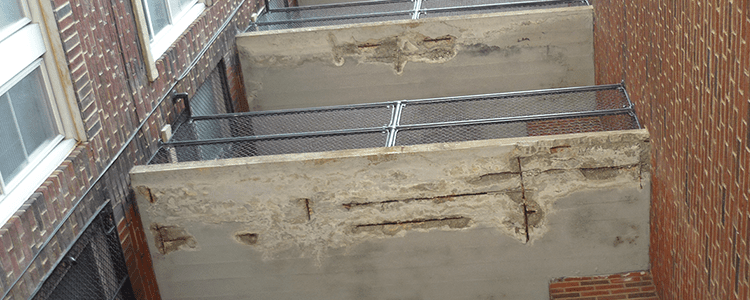
When it comes to overcoming leaking issues on balconies, it is important to hire a professional for balcony waterproofing. While DIY solutions may seem tempting, they often impose more problems than they solve. Hiring a professional ensures that the job is done correctly and efficiently, saving you time and money in the long run.
Leaking balconies can cause damage not only to your own property but also to your neighbors’. Water can seep through the floor and ceiling, creating damp and mold issues in both units. This can result in costly repairs and can strain relationships with your neighbors.
Water leaks can occur at any time, whether it’s raining or simply when you’re washing the balcony. Even if it hasn’t rained for a couple of days, there may still be water pooling on the balcony’s surface, which can be harmful to the structure. Additionally, balcony railings that are not properly sealed can allow water to seep through, resulting in damage to the area below.
One common cause of balcony leaks is the lack of a transparent waterproofing membrane. This membrane helps to prevent water from rising or passing through the balcony floor and allows for proper drainage. Without this membrane, water can easily seep into the balcony, causing leaks and damage.
Another common cause of leaks is the improper installation or lack of a bottom railing. Balconies without a bottom railing can allow water to pour off the edge, resulting in water damage to the balcony and the area below. It is important to have a professional install both a top and bottom railing to ensure proper drainage and prevent water from seeping through.
If your balcony is enclosed, it is important to follow the rules and regulations stated by the local authorities. In some areas, non-enclosed balconies are not allowed, as they can create safety hazards for neighbors and may violate building codes. Before enclosing your balcony, be sure to check with the appropriate authorities and obtain any necessary permits.
Overall, hiring a professional for balcony waterproofing is the best way to ensure that your balcony remains leak-free. They have the knowledge and experience to address the common causes of balcony leaks and provide effective solutions. So, don’t risk causing damage to your property or creating problems with your neighbors – leave the balcony waterproofing to the experts!
“
Why do balconies leak?
There are several reasons why balconies may leak. Common causes include cracks in the concrete, poor construction or installation, improper waterproofing, and damage from freezing and thawing cycles.
How can I prevent my balcony from leaking?
To prevent your balcony from leaking, it is important to ensure proper construction and installation. This includes using high-quality materials, applying a waterproofing membrane, sealing any cracks or gaps, and regularly inspecting and maintaining the balcony.
What are some signs that my balcony is leaking?
Signs that your balcony may be leaking include water stains or discoloration on the ceiling or walls below, damp or musty odors, peeling or blistering paint, and visible cracks or gaps in the balcony surface.
Can balcony rain curtains help with waterproofing?
Yes, balcony rain curtains can be a helpful addition to your balcony waterproofing strategy. They provide an extra layer of protection against rain and wind, helping to keep water from seeping into the balcony and causing leaks.
How often should I check and maintain my balcony?
It is recommended to check and maintain your balcony at least once a year. This includes inspecting for any signs of damage or leaks, sealing any cracks or gaps, cleaning the balcony surface, and ensuring that the waterproofing membrane is still intact and effective.
What are some common reasons why balconies leak?
There are several common reasons why balconies may leak. One of the main reasons is improper installation or deterioration of the waterproofing membrane. This can lead to water seeping through the balcony floor or walls. Another common reason is poor drainage, where water is not properly directed away from the balcony. Additionally, balcony leaks can be caused by cracks or gaps in the balcony structure, which allows water to enter.


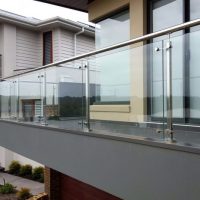 Enhance Your Home’s Appeal and Functionality with Sliding Glass Balconies
Enhance Your Home’s Appeal and Functionality with Sliding Glass Balconies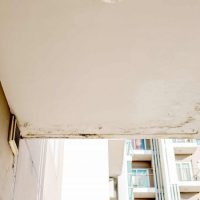 Complete Step-by-Step DIY Guide for Repairing a Leaking Balcony
Complete Step-by-Step DIY Guide for Repairing a Leaking Balcony Step-by-Step Guide – How to Replace Broken Glass in a Patio Door
Step-by-Step Guide – How to Replace Broken Glass in a Patio Door